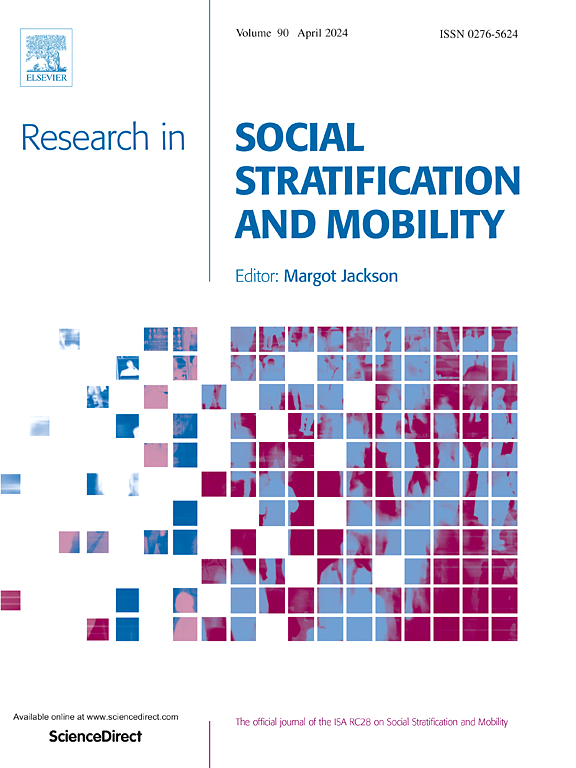Neoliberalism and labor's long decline: Financialization, precaritization, and union density in the American states, 1964–2023
IF 2
1区 社会学
Q1 SOCIOLOGY
引用次数: 0
Abstract
Despite encouraging efforts at union revitalization, the long-term decline of union density in the U.S. continues. In this paper, we examine the influence of two master processes of neoliberal capitalism contributing to that decline that have received insufficient attention in previous research—the financialization of the economy and precaritization of work. Using longitudinal data for the 50 U.S. states for 1964–2023, we conduct a state-level analysis and find that both financialization and precaritization negatively affect union density net of other covariates. Consistent with our expectations, we further find that these effects are historically and regionally contingent. That is, the negative effects of financialization and precaritization are confined mainly to the neoliberal period (1981–2023) and to Non-southern states. We further find that these effects of financialization and precaritization on union density differed before, during, and after the Great Recession, suggesting that the Recession had a disruptive influence on these relationships. We discuss the relevance of these findings for the future vibrancy of the union movement.
新自由主义与劳工的长期衰落:1964-2023年美国各州的金融化、不稳定化和工会密度
尽管鼓励重振工会的努力,但美国工会密度的长期下降仍在继续。在本文中,我们研究了新自由主义资本主义的两个主要过程对这种衰退的影响,这两个过程在以前的研究中没有得到足够的重视——经济的金融化和工作的不稳定化。使用纵向数据的50 美国研究发现,金融化和不稳定化都会对其他协变量的联合密度网产生负面影响。与我们的预期一致,我们进一步发现这些影响是历史和区域偶然的。也就是说,金融化和不稳定化的负面影响主要局限于新自由主义时期(1981-2023)和非南方国家。我们进一步发现,金融化和不稳定化对工会密度的影响在大衰退之前、期间和之后都有所不同,这表明经济衰退对这些关系产生了破坏性影响。我们将讨论这些发现与工会运动未来活力的相关性。
本文章由计算机程序翻译,如有差异,请以英文原文为准。
求助全文
约1分钟内获得全文
求助全文
来源期刊
CiteScore
7.80
自引率
6.00%
发文量
46
期刊介绍:
The study of social inequality is and has been one of the central preoccupations of social scientists. Research in Social Stratification and Mobility is dedicated to publishing the highest, most innovative research on issues of social inequality from a broad diversity of theoretical and methodological perspectives. The journal is also dedicated to cutting edge summaries of prior research and fruitful exchanges that will stimulate future research on issues of social inequality. The study of social inequality is and has been one of the central preoccupations of social scientists.

 求助内容:
求助内容: 应助结果提醒方式:
应助结果提醒方式:


